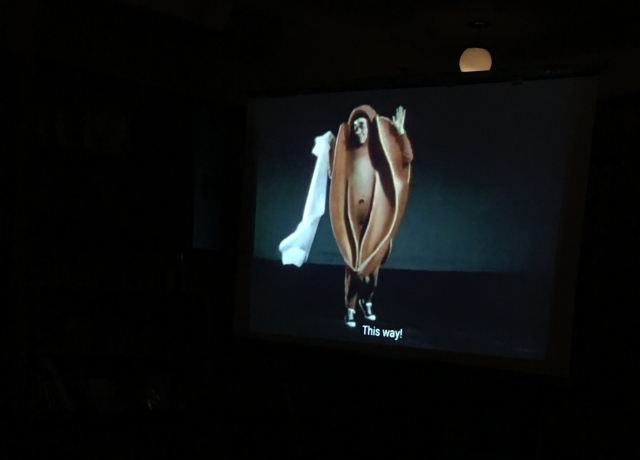As the ARTivism Lab speaker series comes to a close, we were given the opportunity to observe the past and present work of various feminist activists. With a focus on archival material, it was incredibly rewarding to see said activists reflect upon their previous pieces and individual journeys through feminism. With such pieces these women forged a space for the female narrative and voice, one in which I benefit openly from today.
Many of the artists present discussed the outrage that followed the release of some of their work. Such controversy is reflective of a time when creating art that challenged the hegemonic discourse carried a heavier consequence. The bravery and trailblazing nature inherent within such feminists facilitated a future in which women such as myself are free to explore various subject matters without fear of consequence. For example in 1995 Thirza Cuthand released a self-made short film titled ‘Lessons In Baby Dyke Theory.’ Upon its debut Cuthan was accused of spreading lesbian ‘recruitment’ ideologies, resulting in their ban from local festivals. Similarly Midi Onodera’s film ‘Ten Cents a Dance’ illustrated the difficulties associated with a one night stand, told through various couples of different sexual orientations. Classified as “porn”, Onodera faced challenges in acquiring funding. I owe my privilege of free expression to the self-identifying women who fought for it before me.
The event also made aware the privilege I carry as a result of my sexuality. Being straight, I have encountered far less systemic and social challenges than women who are gay. Anna Willats recounted her experiences of getting pregnant through insemination as a lesbian in the 1980s. While told through a humorous tone, the story made evident the everyday challenges faced by those who do not fall under the dominant mainstream. As non-heteronormative relationships were heavily looked down upon and often forbidden, Willats and her partner were forced to supply their own sperm and injection processes. This is opposed to straight women unable to get pregnant through traditional approaches, who have readily available access to public sperm banks.
The Laboratory of Feminist Memory Bar demonstrated the importance of preserving archival material as a means to re-write history. Through interacting with archival material one has the potential to reclaim history by taking agency in highlighting voices and stories previously disregarded, shifting the lens through which we typically view history. However for such repositioning to take place, archival work must be both available and accessible. Materials created as a counter-discourse are commonly underrepresented as they tend to challenge hegemonic forces already in place. Activists today need to take special consideration to ensure that such work is no longer silenced due to a lack of media attention. As emphasized by Bociurkiw, a lack of preservation and digitization of non-mainstream archival material means that media created by marginalized groups will continue to go unnoticed unless intentionally preserved (7). Events such as the ARTivism Speaker Series work to draw attention to the voices that have changed and challenged traditional means of representation, and and thus paved a space for today’s feminists.

Works Cited
Bociurkiw, Marusya. “Big Affect: The Ephemeral Archive of Second-Wave Feminist Video Collectives in Canada.” Camera Obscura, vol. 31(3), 2016, https://courses.ryerson.ca/ d2l/le/content/173420/viewContent/1843641/View. Accessed 8 April 2018.